“Sitting back and listening doesn’t work”: An interview with Talawa Theatre community engagement producer Roxan Kamali-Sarvestani
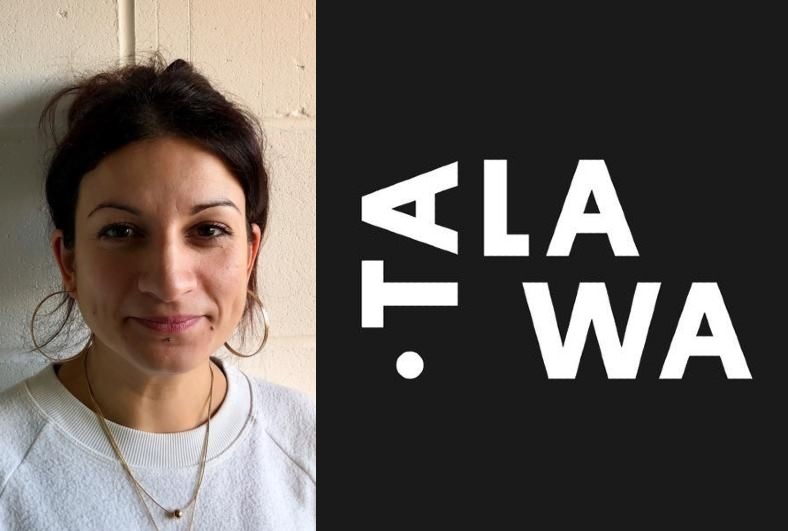
Roxan Kamali-Sarvestani is the community engagement producer for Talawa Theatre, a touring company led by black artists. Working within her native borough of Croydon, she uses her vast expertise in theatres across London to further the ensemble’s participation in the local area and beyond. We caught up with Roxan to discuss the importance of race consciousness in progressive arts and Talawa’s own initiatives, including outreach programmes that develop and support emerging black creatives as well as unconscious bias and diversity training.
Thank you very much for giving me your time for this interview. Can you tell me about Talawa Theatre Company and your role within the company?
Talawa is the UK’s primary black-led touring theatre company. Our work is informed by the wealth and diversity of the black British experience, and through that we create outstanding work by cultivating the best in emerging and established black artists. We invest in talent, develop audiences and inspire dialogue with and within communities across the UK and internationally. By doing so, we enrich the cultural life of all.
I am responsible for producing Talawa Theatre Company’s outreach and engagement activities, which aim to broaden and develop participation in Talawa’s education and artist development initiatives, working locally with the community in Croydon as well as nationally with partner organisations.
Projects are varied and work with young people, emerging artists and communities. We deliver training projects which develop and support black emerging creatives, through programmes like TYPT and Creating Routes. We are engaging with new audiences and provide learning opportunities alongside our shows as well as developing bespoke projects such as our unconscious bias, diversity and anti-racism training.
Talawa Theatre has various programmes that target the gap between art creation and art production: Creating Routes, Talawa Firsts, Make and Make Online. Can you tell us about why a focus on inclusivity is so vital for a theatre company to be progressive?
For Talawa the answer lies within our mission and our enduring values. Our work is informed by and exists to showcase the wealth and diversity of the black British experience. We can only create outstanding work by cultivating the best in emerging and established black artists at every stage of their careers and by engaging with communities.
Theatre is for everyone, we should all have access to creating or experiencing theatre. Whether that be as a creative, an audience member or a participant. Our spaces need to provide a platform and a voice for everyone in order for us to share our experiences of the world. Inclusive practice is essential for diversity, it evolves artistic development, widens audiences and will keep the industry alive and relevant.
What is unconscious bias and diversity training and how does it work? I can imagine it would be a very useful (and fun) lesson to have on the school curriculum. Can you see a training programme like this filling the empty gap in the current education system?
Unconscious bias operates through learned stereotypes that are automatic, unintentional, deeply ingrained, seemingly universal, and which influence behaviour. We encourage organisations or groups of individuals to dismantle systematic racism and biases by educating their teams to be aware of and recognise unconscious bias, and build awareness and understanding collectively.
Our bespoke unconscious bias and diversity training is designed to expose people to their unconscious biases, educate them to be able to identify and adapt their language and behaviours that may be harmful, while finding a more informed way of working with solutions for embedded change.
A hands-on and immersive approach, with plenty of practical activities and experiential learning which involves active participation and dialogue, is at the root of all our training. We start by helping participants identify their own bias. We guide them through areas of their lives that they may not have thought about. This is then used as a springboard to discuss how they felt, what they experienced, and it gives them a different perspective which allows them to consider their own privilege, or lack thereof, and relate this to the experience of others and the impact this can have on people’s lives. This is then linked back to the workplace and how it may impact decision making, moving from unconscious to conscious action.
It has been developed and is delivered by a Black and ethnically diverse team. This means that it has an impact that goes well beyond what others are able to offer, through authentic and sensitively guided conversations, rooted in lived experiences, which enable participants to be brave about their development, to not shy away from their biases.
Yes, I do think unconscious bias training would work very well in the education system, its challenging and engaging methods would fit well within a classroom. Along with many other personal development skills that can be taught at all ages. We are currently adapting this programme for both primary and secondary schools; there is a demand and need for it.
The training is designed to operate within corporate organisations, how does the arts background of Talawa inform the training and do you think it gives a unique perspective?
The training is designed to be able to operate within all types of organisations. From large corporates to grassroots charities. Our theatre background definitely informs the training, but it is not the main element. The most unique perspective Talawa brings is the authenticity of the sensitively guided conversations, the importance of these interactions is that they are not passive.
The activities are designed for participants to gain a deeper understanding of perspectives beyond their own lived experiences. You can’t shift the attitudes of individuals or their organisations without this.
As a theatre company, we naturally incorporate elements of drama techniques. We use forum theatre methods to recreate real-life scenarios drawn directly from the client organisation, which we use to look at potential outcomes of different courses of action, using these to identify the barriers and biases which have led to an unacceptable situation, and to identify ways to prevent them happening again. By holding a mirror up, we can show where the mistakes have been made, and help navigate towards the right course of action.
The participatory approach we have developed provides the opportunity for rich and transformative discussions and learning which would not necessarily be possible through more traditional presentation style training. Sitting back and listening doesn’t work.
Just as watching a great piece of theatre isn’t always a passive experience, it explores different perspectives, ask questions and leaves you wanting to question and debate the topics raised. We are also encouraging ongoing self-learning and research to understand more deeply/coherently around the subject matter between stages and after the training is complete. It is an ongoing process, as an ally, you need to own your mistakes and be proactive in your own education, every day.
What should companies and individuals be doing to ensure that the self-reflection they’ve begun in regard to their own biases leads to permanent change?
Start by investing in meaningful unconscious bias and diversity training with a third party – like Talawa! – to mediate, guide, give an outside perspective and hold the organisation accountable. This helps avoid echo chambers and no/slow progress.
Ensure that there is transparent and ongoing communication between all departments and stakeholders about the work being done. Involve all staff in decision-making processes ensuring it is done in a manner where the onus isn’t on marginalised folks to speak up and potentially be in the firing line.
Work with the whole organisation to define and implement an action plan, build the agreed commitments for the short, medium, and long term outcomes into business plans. Initiate change, don’t just talk about it. Build in regular reviews, and evaluate the progress with independent committees or advisory groups.
Establish diversity standards with new partnerships and projects which are as important as safeguarding and risk assessments – the Oscars’ new inclusion standards are an example.
Have clear and easy accessible polices and complaint procedures with effective resolutions and accountability.
Be fearless about making what might feel like radical changes or getting something wrong; and when you do, put it right, learn from it and ensure it never happens again.
Talawa Theatre has an exciting show forthcoming. Tales from the Front Line is a series of verbatim interviews of black frontline workers and is described as a way to “safeguard” the stories. The effort to take forgotten voices onto the stage is a political act, since forgetting by its nature necessitates acceptance. To what extent would you say that giving people a voice implies remembrance of a past that made the present possible?
There’s an old saying, that those who forget the past are doomed to repeat it. The act of making a record, and a verbatim record rather than a fictionalised one, is that we ensure that the voices of Black people working as key workers or on the front line of the pandemic in 2020 cannot be erased or forgotten. Oral histories are difficult to deny because they contain the truth of people’s lives.
Can you tell us about Talawa Theatre and Royal Exchange Theatre’s production of Guys and Dolls as the UK’s first all-black play? Why is it important to have an all-black cast, and how does this act bring about positive change for the future of theatre?
Talawa Theatre Company’s remit, since its creation in 1986, was always to provide opportunities for black actors and theatre creatives to carve out a place for their talents in British theatre. Colour-conscious casting enables us to read stories in non-traditional ways and ask questions of society.
Casting Guys & Dolls as an all-black production and shifting the production to Harlem in the late 1930s, we brought out the love story, the bets against destiny and of course, the debt that so much popular culture owed to black music of the time. All these fresh elements together breathed new life into a well-worn musical and was a storming success with audiences.
Finally, given that it has become known that Shakespeare wrote King Lear at the time of another pandemic and another lockdown, can you talk about the Royal Exchange Theatre and Talawa’s stage-to-screen production of King Lear – broadcast on BBC 4 – which cast a black king?
As I mentioned, colour-conscious casting enables us to read stories in non-traditional ways and ask questions of society. Talawa’s King Lear, co-produced with the Royal Exchange and starring Don Warrington, had audiences asking themselves about the possibility of there having been a black presence in these islands in the post-Roman twilight.
In casting the play – a story about actions speaking louder than words – as we did, and against the backdrop of Brexit, the deployment of racist tropes in popular narratives, and the emerging scandal of the Windrush deportations, we encouraged audiences to think more broadly about how divisions were being created, at whose expense, and how we are ignoring the fact that we are an ageing society, and reliant on the help of others. I guess you could say that some of those ideas, thoughts, and questions are still with us.
Marissa Khaos





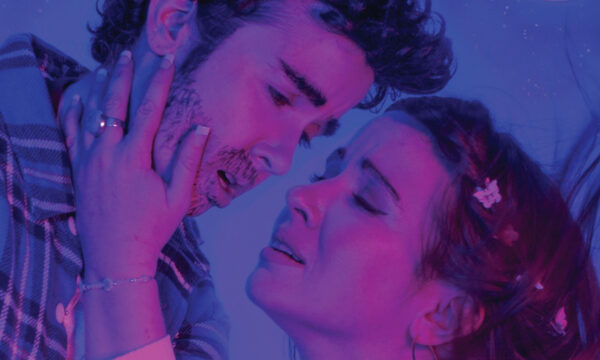
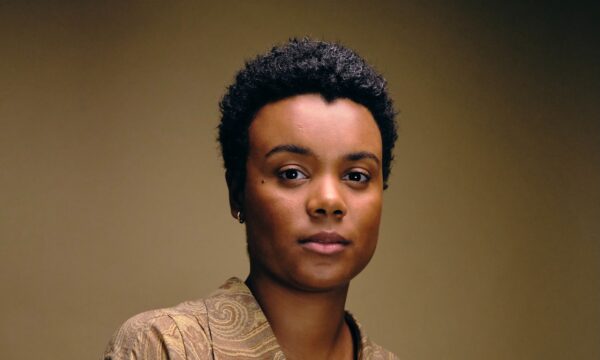

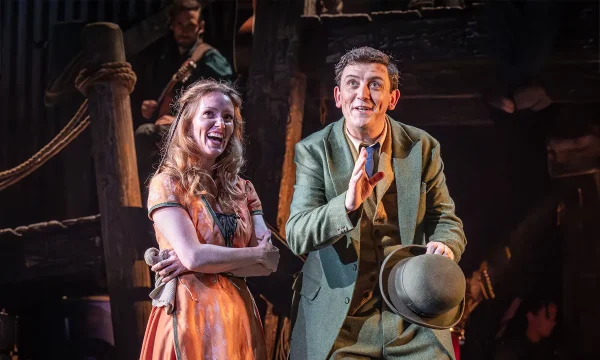
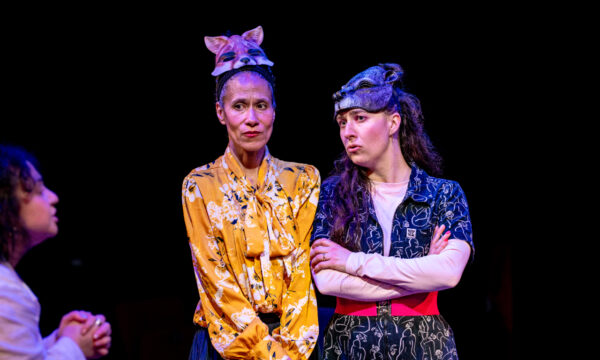














Facebook
Twitter
Instagram
YouTube
RSS